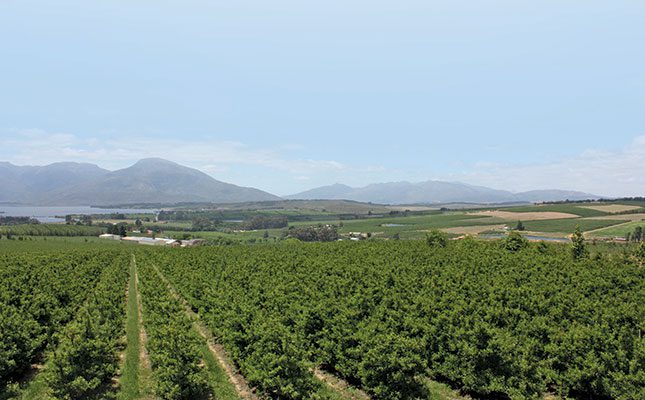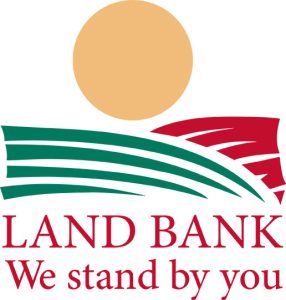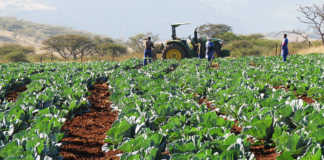
Established in 1912, South Africa’s Land Bank plays an important role in the country’s agriculture sector. Moreover, its history and mandate are closely tied to the socio-economic and political context of South Africa.

At the time of its creation in 1912, the Land Bank was established to support white farmers.
The loans were supported by government guarantees, allowing the Land Bank to provide credit on favourable terms compared with commercial banks. This helped white farmers consolidate their holdings and improve their productivity.
With the advent of democracy in South Africa, the bank’s mandate expanded to address historical inequalities and promote equitable access to agricultural finance. The institution’s focus shifted to supporting emerging and previously disadvantaged farm
ers, particularly black farmers, to foster inclusive agricultural development.
Today, the bank’s mandate is guided by the Land and Agricultural Development Bank Act of 2002. The Act outlines the bank’s functions and objectives, which can be interpreted to include, amongst others, the following functions and objectives:
- Providing accessible and affordable financial services
The Land Bank aims to offer accessible financial products and services, including loans, to farmers and agricultural enterprises across the country. It strives to ensure that farmers, including emerging farmers, can gain access to affordable credit for developing their agricultural operations. - Promoting sustainable agricultural development
The Land Bank encourages farmers to adopt practices that preserve natura - l resources, enhance land productivity, and mitigate climate-change risks. It provides financial solutions that supports projects aligned with sustainable agriculture.
- Empowering historically disadvantaged farmers
The bank seeks to redress historical imbalances by providing targeted support to emerging and previously disadvantaged farmers. This includes technical advice, mentoring programmes, and capacity-building initiatives to help these farmers overcome barriers and develop successful enterprises. - Collaborating with stakeholders
The bank works with various stakeholders, including government agencies, agricultural organisations and other financial institutions, to strengthen the agriculture sector. - Ensuring financial sustainability
The bank operates as a financially sustainable institution, ensuring that it can fulfil its mandate effectively and support the agriculture sector over the long term. It strives to manage its operations prudently, maintain a strong financial position, and implement risk management practices to protect its stakeholders’ interests.
In recent years, the Land Bank has faced debt repayment difficulties and governance issues. However, efforts are underway to restructure and recapitalise the institution to ensure its continued role in supporting agricultural development in South Africa.
From a governance perspective, the bank has managed to significantly improve its internal controls, leading to a clean audit by the Auditor-General for 2023/24. The bank’s financial position steadied after the bank’s 2020 debt default.
About 58% of the bank’s liabilities since its default have been paid to lenders following the capital repayment that was made in the beginning of June 2023, according to Themba Rikhotso, CEO of the Land Bank.
In an interview with Farmer’s Weekly during the 2023 Nampo Harvest Day, Rikhotso said this would mean the bank had covered two-thirds of its debt, strengthening the institution’s financial position markedly.
“I foresee a reconfigured Land Bank that would be able, in 10 years’ time, to take up a very strong leadership position in the holistic development of the sector. While the bank will maintain its focus of adding financial constancy to both the corporate and commercial sectors, it will also be driving transformation of the sector.
“This will be done by bringing emerging farmers into the value chain in a meaningful way,” he said.
Transformation was about the sustainability of measures put in place to benefit emerging farmers, he added. At the moment, transformation was not operating at an optimal level.
Rikhotso added that the commercial farming sector faced its own set of p
roblems. These included a lack of risk mitigation products and a wide range of collateral problems, including insurance.
“Our short-term focus is to create immediate stability in the bank,” Rikhotso said. “We’re busy with a refreshment process, with the emphasis on the execution of our revised business plan.
“We’re also revisiting our funding model in order to carry out the bank’s transformation mandate successfully.”
He emphasised his belief that the Land Bank will soon conclude the liability solution with its lenders that will take it out of its current default situation.
Phone 0800 00 52 59, or visit landbank.co.za.













